Author: Samuel M. Frost, Th.D.
Samuel M. Frost has gained the recognition of his family, peers, colleagues, church members, and local community as a teacher and leader. Samuel was raised in the Foursquare Gospel tradition and continued in the rising Charismatic Movement of the early 1980’s. While serving in local congregations he was admitted to Liberty Christian College in Pensacola, Florida where he lived on campus for four years earning his Bachelor’s of Theology degree. It was there under the tutelage of Dr. Dow Robinson (Summer Institutes of Linguistics), and Dr. Frank Longino (Dallas Theological Seminary) that he was motivated to pursue a career in Theology. Dr. Robinson wrote two books on Linguistics, Workbook on Phonological Analysis (SIL, 1970) and Manuel for Bilingual Dictionaries: Textbook (SIL, 1969). It was under these teachers’ guidance that Frost entered into his Master’s studies, being granted a scholarship for Greek I and II at Pentecostal Theological Seminary, accredited, in Cleveland, Tennessee (adjunct of Lee University). Frost completed his study under Dr. French Arrington (The Ministry of Reconciliation, Baker Books, 1980), who used the text of J. Gresham Machen, New Testament Greek for Beginners.
Frost studied Hebrew for two years under Dr. Mark Futato (author, Beginning Biblical Hebrew, Eisenbrauns, 2003) and Dr. Bruce K. Waltke (author, An Introduction to Biblical Hebrew Syntax, Eisenbrauns, 1990) at Reformed Theological Seminary, Orlando, Florida. With combined credits from PTS and RTS, Samuel completed his Master of Arts in Christian Studies and Master of Arts in Religion from Whitefield Theological Seminary in Lakeland, Florida under the direct tutelage of Dr. Kenneth G. Talbot, co-author of the well reviewed work, Hyper-Calvinism and Arminianism (Whitefield Media, 2005) with Dr. Gary Crampton (and Foreword by the late, Dr. D. James Kennedy). Dr. Talbot also oversaw Samuel’s Dissertation, From the First Adam to the Second and Last Adam (2012) earning him the Magister Theologiae (Th.M.) degree. He also helped put together A Student’s Hebrew Primer for WTS, designed and graded exams for their Hebrew Languages course.
Samuel’s studies lead him into an issue in the field of Eschatology where his scholarship and unique approach in Hermeneutics garnered him recognition. Because of the controversial nature of some of his conclusions, scholars were sharp in their disagreement with him. Frost’s initial work, Misplaced Hope: The Origins of First and Second Century Eschatology (2002, Second Edition, 2006 Bi-Millennial Publishing), sold over four thousand units. While arguing for the Reformation understanding of sola Scriptura as defined by the Westminster Confession of Faith, Frost’s book launched a heavily footnoted argument for a total reassessment of the doctrine known as the Second Coming of Christ. The conclusion was that the events of the war of the Jewish nation against their Roman overlords in 66-70 C.E. formed the New Testament authors’ eschatological outlook, and went no further than their own first century generation; a view otherwise known as “full” or "hyper" Preterism. Internationally recognized Evangelical author and speaker, Steve Wohlberg remarked, ‘On the “preterist” side today…we have such influential leaders as Gary DeMar, Kenneth L. Gentry, Jr., David Chilton, R.C. Sproul, Max King, James Stuart Russell, Samuel M. Frost, and John Noe. To these scholars…the beast is not on the horizon, he’s dead” (Italics, his)” (End Time Delusions, Destiny Image Publishers, 2004, page 133). It should be noted that only Noe, King and Frost supported the “full” Preterist position.
Thomas Ice and co-author of the best selling Left Behind series, Tim LaHaye, quote Frost’s work, Misplaced Hope, as well in their book, The End Times Controversy: The Second Coming under Attack (Harvest House Publishers, 2003, page 40). Dr. Jay E. Adams, who single handedly launched “a revolution” in Christian Counseling with his work, Competent to Counsel: An Introduction to Nouthetic Counseling, (1970, Zondervan), also wrote an analysis of Frost’s work in Preterism: Orthodox or Unorthodox? (Ministry Monographs for Modern Times, INS Publishing, 2004). Adams wrote of Misplaced Hope as a "useful, scholarly work" (p.6 - though he disagreed with the overall thesis). Dr. Charles E. Hill, Professor of New Testament and Early Christianity at Reformed Theological Seminary, Orlando, wrote of Misplaced Hope that Frost, “attacks the problem of the early church in a much more thoroughgoing way than I have seen” (When Shall These Things Be? A Reformed Response to Hyper Preterism, Ed. Keith Mathison, Presbyterian & Reformed Publishing, 2003, ‘Eschatology in the Wake of Jerusalem’s Fall’ p. 110-ff.). There were several other works as well that took the scholarship of Frost seriously, like Ergun Caner in The Return of Christ: A Premillennial Perspective, Eds., Steve W. Lemke and David L. Allen (B&H Publishing, 2011).
Because of the controversial nature of Frost’s conclusions on these matters, it was difficult to find a denomination within the Church-at-Large to work in terms of pastoral ministry. That situation changed when Samuel was called by a Bible study group in Saint Petersburg, Florida to found a congregation. Christ Covenant Church was established in 2002 operating under the principles outlined by Presbyterian historian James Bannerman’s work, The Church of Christ: A Treatise on the Nature, Powers, Ordinances, Discipline, and Government of the Christian Church (Banner of Truth Trust, 1974, original, 1869). By-Laws and a Constitution were drawn up in the strictest manner for what was considered an “Independent” establishment of a Presbyterian Church, granted that a “call” was received and recognized by Presiding Elders duly ordained from existing and recognized denominations. Two Elders, one ordained in the Reformed Presbyterian Church (Mike Delores), and another ordained in the Presbyterian Church of America (Dr. Kelly N. Birks, now deceased) tested and reviewed the call, ordaining Samuel on October 20th, 2002, the Twenty Second Sunday after Trinity. Proper forms were submitted to Tallahassee, Florida with the stamp of a Notary Public Witness. Christ Covenant Church (CCC) functioned as a local church for five years with a congregation as large as 30 members. Frost was gaining recognition after Misplaced Hope had been published in January of that year, and conferences were hosted that included debates with another prominent "full" Preterist educator, Don K. Preston. CCC hosted best-selling authors, Thomas Ice, and Mark Hitchcock from Dallas Theological Seminary; and Dr. James B. Jordan (Westminster Theological Seminary), well-known author/pastor in Reformed theological circles. Frost was invited for the next several years to speak at over 25 conferences nation-wide, was featured in articles and an appearance on local news in Tampa for one of CCC’s conferences. The Evangelical Theological Society also invited Samuel to speak at the Philadelphia conference (Frost is currently a Member of ETS as well as Society of Biblical Literature).
During this time Samuel had submitted one more book, Exegetical Essays on the Resurrection of the Dead (TruthVoice, 2008; repr. JaDon Publishing, 2010); and co-wrote, House Divided: A Reformed Response to When Shall These Things Be? (Vision International, 2010). Frost also wrote several Forewords for up and coming authors who were influenced by his teaching materials, as well as cited many times in books, lectures and academic papers. However, because of certain aspects of Hermeneutics and Frost’s undaunted commitment to scholarship (with always a strong emphasis on the personal nature of devotional living to Christ), several challenges to the "hyper" Preterist view he espoused finally gave way, largely due to the unwavering commitment to Samuel by the Dean of Whitefield Theological Seminary, Dr. Kenneth G. Talbot, who continually challenged him. In what shocked the "hyper" Preterist world, Samuel announced after the Summer of 2010 that he was in serious error, and departed the movement as a whole, along with Jason Bradfield, now Assistant Pastor of Christ Presbyterian Church, Lakeland, Florida . Christ Covenant Church had dissolved after 2007 while Samuel continued as a public speaker and writer, largely due to reasons that would unravel Frost’s commitment to "hyper" Preterism as a whole.
The documentation of Frost’s departure was published by American Vision’s Founder, Gary DeMar, with a Foreword by Dr. Kenneth L. Gentry. Why I Left Full Preterism (AV Publishing, 2012) quickly ran through its first run. The book was later republished under the arm of Dr. Kenneth L. Gentry and is sold today (GoodBirth Ministries Publishing, 2019; though still available in Kindle form from American Vision). Dr. Gentry also gave mention to Frost in his book, Have We Missed the Second Coming: A Critique of Hyper Preterism (Victorious Hope Publishing, 2016), noting him as "one of the most prominent" teachers within Full Preterism (135). Dr. Keith Mathison, Professor of Systematic Theology at Reformation Bible College in Sanford, Florida, endorsed the book as well. Samuel has gone on to write, Daniel: Unplugged (McGahan Publishing House, 2021); The Parousia of the Son of Man (Lulu Publishing, 2019); God: As Bill Wilson Understood Him, A Theological Analysis of Alcoholics Anonymous (Lulu Publishing, 2017). He is also active as a certified Chaplain with the Henry County Sheriff’s Department, Indiana, and enrolled with ICAADA (Indiana Counselor’s Association on Alcohol and Drug Abuse), and worked directly under Dr. Dennis Greene, Founder of Christian Counseling and Addictions Services, Inc., for a year. Frost’s passion is in the education of the local church on various issues and occasionally works with Pastor Alan McCraine with the First Presbyterian Church in Lewisville, Indiana, and Bethel Presbyterian Church, Knightstown, Indiana, where he periodically is called upon to give the sermon. Samuel, with his wife, Kimberly, helped to establish Heaven’s Bread Basket food pantry that donates food items to local families in need once a month – a ministry of the Session of First Presbyterian Church, Lewisville, Indiana.
Samuel also works part time at Ace Hardware in New Castle, Indiana for several years. He has a solid, family reputation in the community, and has performed local marriages and funerals. He also sits on the Board of the Historical Preservation Committee in New Castle. Recently, he has completed his two year quest for a Th.D from Christian Life School of Theology Global, Georgia.
View all posts by Samuel M. Frost, Th.D.
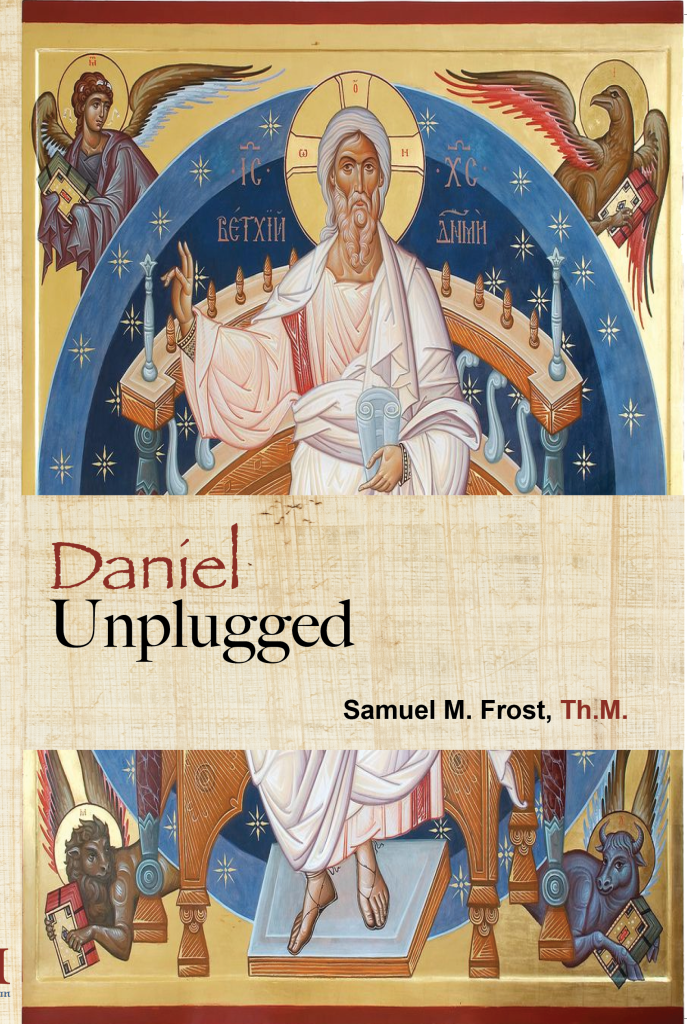
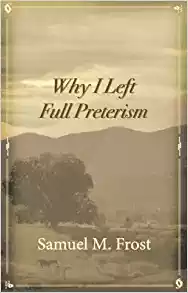
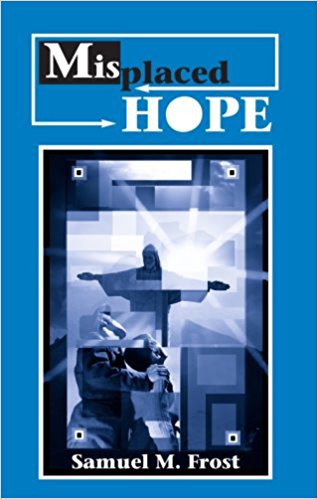
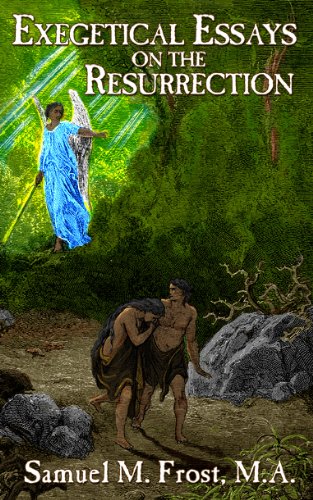
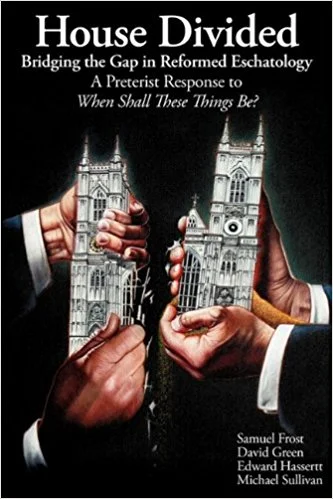
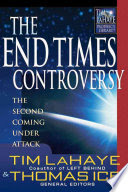
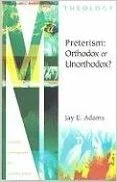
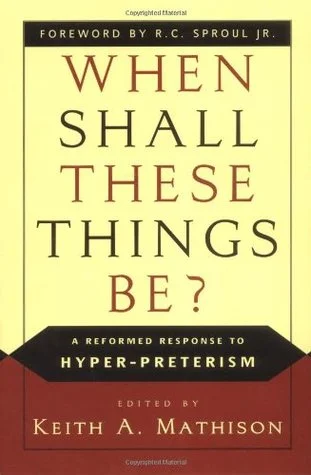
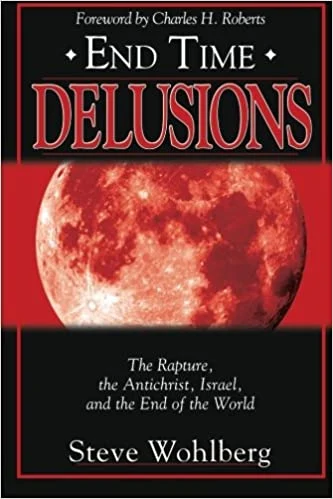
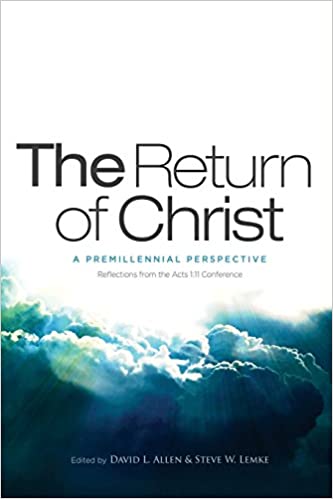
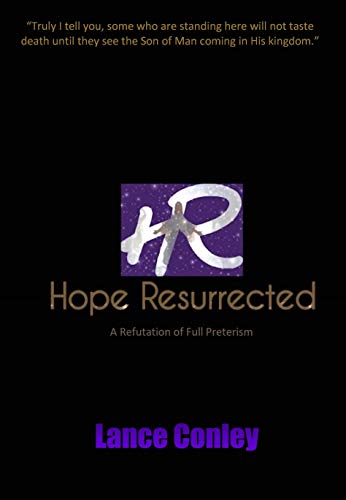
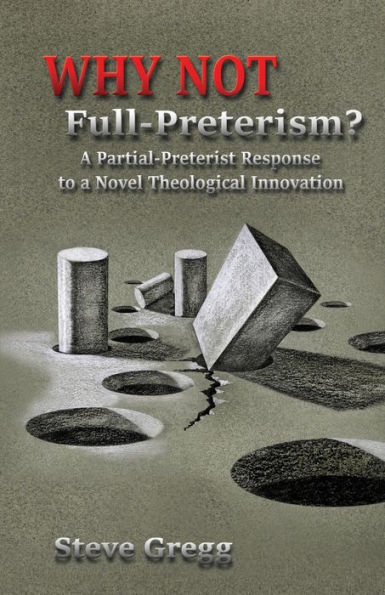
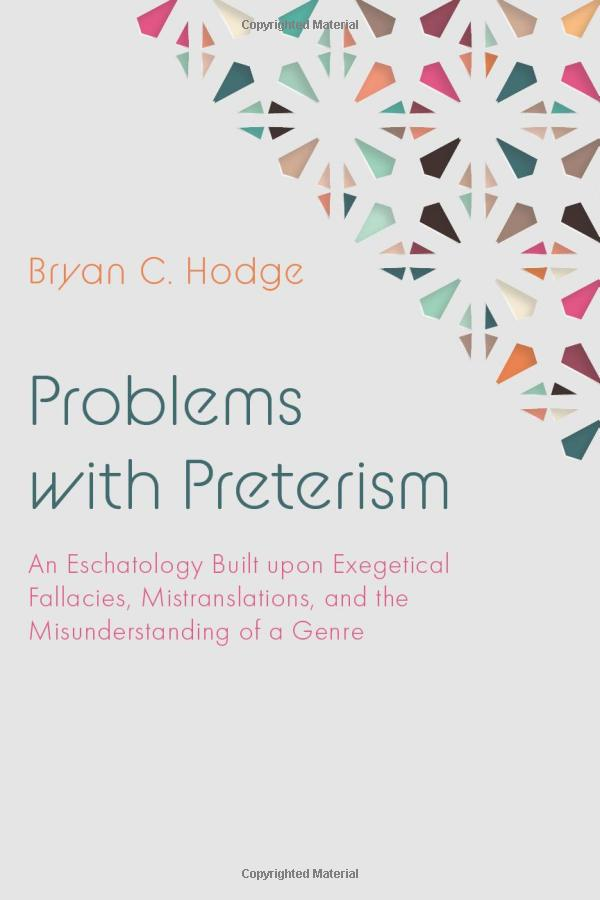
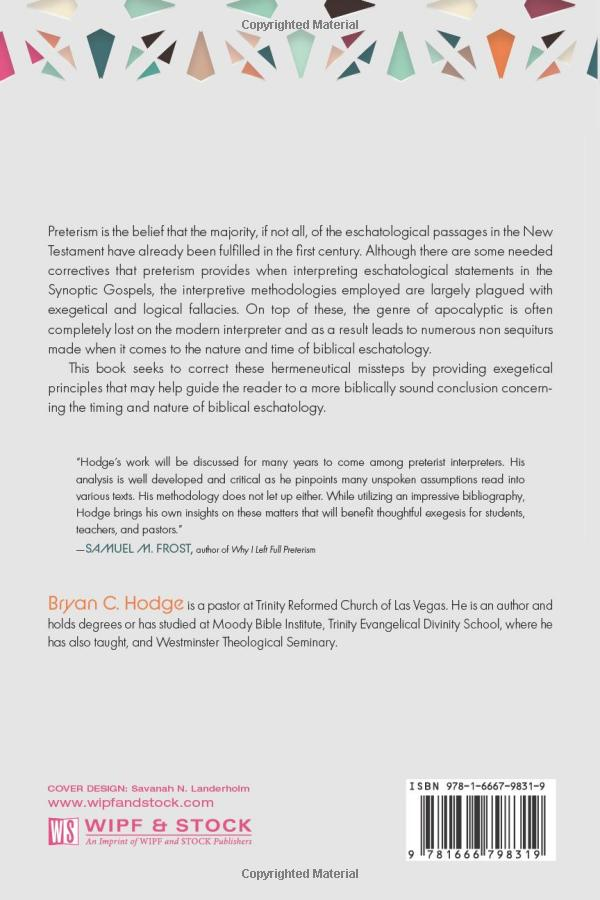
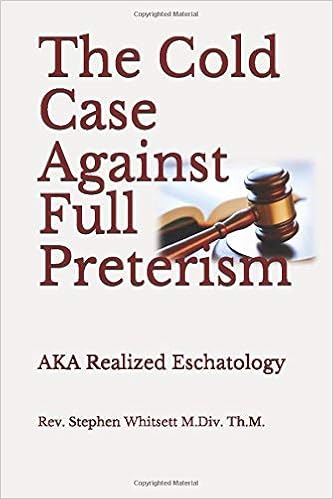


Hi Samuel.
I once reached out to you in a comment on your blog (I have no idea how I could not find it again), and I recently reached out to you in the YouTube comments section of your moth video.
I wanted to know if you had read and/or done critique on Ed Stevens’ book “What Happened in 70 AD?” I find myself still fascinated by the very strange historical events of the Roman-Jewish war, and his book certainly brings that out. When I was reading it, I felt like I was being sucked back into hyper-preterism for a bit.
Would you say (if you read his book) that his Achilles’ heel(s) is the fact that the resurrection he believes happened left tons of Christians behind in the world without glorified bodies? There’s a part of me that is okay with believing the dead OT saints were released from Hades into Heaven in 70AD, but I struggle to know how to understand theological application of that (if in fact it is true the OT saints departed Hades and went to Heaven at that time).
If you have any insight on an Achilles’ heel or heels the book has or with his position, I would like to know. I loaned my “Why I Left Full Preterism” book out to someone who lives outside my state. I don’t recall you mentioning Ed Stevens, and I believe Ed’s view of resurrection is different from Don K. Preston’s.
LikeLiked by 1 person
Hey John,
Thanks for writing. I did mention Ed Stevens in my book, briefly. Basically, since the “corporate idea” that I espoused in Exegetical Essays on the Resurrection, published by Don Preston (to this day). The basic exegetical issue that caused me to accept Max King’s view (Preston’s view), is that they are correct that the “body” that is sown is the “body” that is raised. Ed’s view has “two bodies” – and exegetically, this simply goes against the vast majority reading of textual scholars in the Greek text. Ed’s view has “some” Christians getting “changed” in 70 AD (like Enoch), then others getting “released from Hades” and “getting new bodies in heaven” (that is, their dead bodies remain in the dirt and are not raised). Still further, our bodies remain in the casket and we “get new bodies” upon death! Lot’s of bodies going on here. This is untenable. Of course for Don and Max King’s view, “body” is redefined to mean ‘corporate’ or ‘covenant’ body – which has zero to do with our physical bodies. THEREFORE, If I reject Don’s view for bad definition, and reject Ed’s view for implausibility and “two bodies” – the only logical solution is that the orthodox concept is correct: our body that is sown is the very body the shall be raised (singular body). It is plain from both Ed and Don that they have a 70 AD at-all-costs- agenda, and that trumps any other considerations – even it that means redefining terms to make them “fit” the 70 AD framework.
As for Hades as a “nether world” or deep, subterranean place for spirits and ghosts, I am currently in my third year for my book on that subject; neck deep. And, to my surprise, my conclusion is that “sheol” (the Hebrew word, Hades is the Greek word used in the Septuagint) means “grave”. I great example of this is, “why do you look for the living among the dead?” This was asked to Mary who was searching for the dead body of Jesus among tombs, the graves – the place of the dead…what we call, “cemeteries”.
Hope that helps….let’s keep the conversation going!
LikeLike
Hi Samuel,
Thank you for your refresher on the resurrection. Yes, I look forward to purchasing your book on that subject regarding Hades when it comes out.
Justin Bass wrote a book titled “Battle for the Keys…” (which I couldn’t finish because the book was “broken” on my kindle. It stopped about halfway leaving me in complete mystery on the topic itself) which goes into the subject of Hades. It has left me in the dark.
Again, thank you for your cordial response. This again helps.
I think I’ll purchase your book on your exiting full preterism again for a reference.
LikeLike